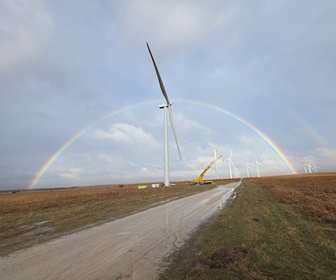For the first time, the psychological and physiological well-being of crew being transited to offshore wind farms in choppy waters will be studied as part of a € 3.6 million project to improve safety. Unscheduled operations and maintenance activities on offshore wind installations account for almost a quarter of the lifetime cost of an offshore farm, but a proportion of that is time wasted in failed crew transits or workers unable to carry out their duties as a direct result of rough weather conditions.
The DemoWind2-funded Improving the Safety and Productivity of Offshore Wind Technician in Transit (SPOWTT) project, coordinated by the Offshore Renewable Energy Catapult, will reveal how the motion of a vessel in transit during certain weather conditions affects workers’ well-being. The result will be a tool that will help marine coordinators determine whether or not to proceed with deploying personnel in turbulent conditions. SPOWTT will provide a forecasting tool, a monitoring tool and help match future assets to environmental conditions. The collaboration involves seven partners from across Europe, including Siemens Gamesa Renewable Energy, the University of Hull, SMC Ltd, providing marine coordination services, Dutch research institutes MARIN and ECN, and BMO Offshore, a data service provider to the offshore wind industry.









